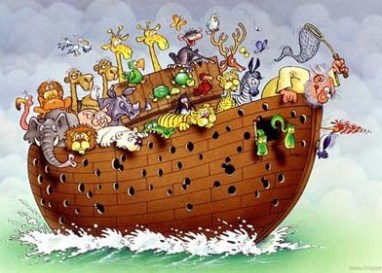
1 Corinthians 14:26-40
26 Well, my brothers and sisters, let’s summarize. When you meet together, one will sing, another will teach, another will tell some special revelation God has given, one will speak in tongues, and another will interpret what is said. But everything that is done must strengthen all of you.
27 No more than two or three should speak in tongues. They must speak one at a time, and someone must interpret what they say. 28 But if no one is present who can interpret, they must be silent in your church meeting and speak in tongues to God privately.
29 Let two or three people prophesy, and let the others evaluate what is said. 30 But if someone is prophesying and another person receives a revelation from the Lord, the one who is speaking must stop. 31 In this way, all who prophesy will have a turn to speak, one after the other, so that everyone will learn and be encouraged. 32 Remember that people who prophesy are in control of their spirit and can take turns. 33 For God is not a God of disorder but of peace, as in all the meetings of God’s holy people.
34 Women should be silent during the church meetings. It is not proper for them to speak. They should be submissive, just as the law says. 35 If they have any questions, they should ask their husbands at home, for it is improper for women to speak in church meetings.
36 Or do you think God’s word originated with you Corinthians? Are you the only ones to whom it was given? 37 If you claim to be a prophet or think you are spiritual, you should recognize that what I am saying is a command from the Lord himself. 38 But if you do not recognize this, you yourself will not be recognized.
39 So, my dear brothers and sisters, be eager to prophesy, and don’t forbid speaking in tongues. 40 But be sure that everything is done properly and in order.
I went ahead a skipped a few verses. I hope you’ll forgive me. Verses 10-25 is more on speaking on tongues and the importance of speaking clearly in gatherings and worship. Paul moves to a summary in verse 26 which is where we will pick him up. At this point, Paul is giving some general guidelines for proper conduct at worship gatherings, of order not chaos.
But the part that I’m sure many of you are having trouble with is the role of women in the church. Now, before you charge like an angry mob, understand that what was written for the people of Corinth, or anyone other ancient people for that matter, is not necessarily applicable today. Having said that, there are women today who believe willingly that a woman’s place is behind, not beside, her husband. We don’t have to agree with that, but those who choose this are happy with their choices and while we may not actively support their philosophy or beliefs, we support their right to make such choices.
So with regard to the progressive thinking of the Corinthians Paul asks “or do you think God’s word originated with the Corinthians?” Apparently, the Corinthians allowed women to speak in their church meetings whereas other churches did not. If you pause a moment to think about this, the Corinthians’ attitude was very similar to Jesus’. Jesus valued women highly and honored them through out his ministry. In fact, there is some belief that some of the earliest disciples and leaders of the early church were women. Why aren’t they mentioned as such in the Bible? Unfortunately, if there were in fact women apostles, disciples, and leaders in the early church, the belief is that the dominant male culture all but squashed them. The Corinthians were if anything, holding fast to the character of Jesus’ ministry, whether intentionally or unintentionally. Paul puts the kibosh on that right quick.
Where should we stand on this issue as Christians today? I say put the women in the back and keep ‘em quiet!!! Just kidding!!! Haha!! No, really. I was just kidding. A few devotionals back, we were talking about the body of Christ, many parts one body. Surely, Paul didn’t mean that all those parts of the body were constituted by men alone? But to suggest that only men assume the ‘important’ roles while women were relegated to the minor, submissive roles is ridiculous. Our culture allows for more than that and by all means we should strive to attain the full potential of every man, woman, and child.
Personally, I do not agree with the position of many churches that hold the attitude that women are inferior and practice things that demean them (It’s not just the men, but in some cases, women are more insistent on this). I am wary of this attitude of privilege because ultimately it’s not about how to handle women. It’s really about power and control. Today it’s gender, tomorrow it’s race, the following day it’s age, and so on. Privilege knows no bounds, and that’s dangerous and unhealthy to the body of Christ.
I subscribe to the old fashioned notion of loving our neighbor as we love ourselves, honoring each person as the child of God she is. It obviously goes beyond the bounds of gender to include the aforementioned elements of race, ethnicities, and age. I will take that even further to include economic status, culture, and sexual orientation. If we are to BE the body of Christ, we must not only include everyone but also be proactive in honoring everyone as the children of God that they, as we, are. Sorry Paul.






